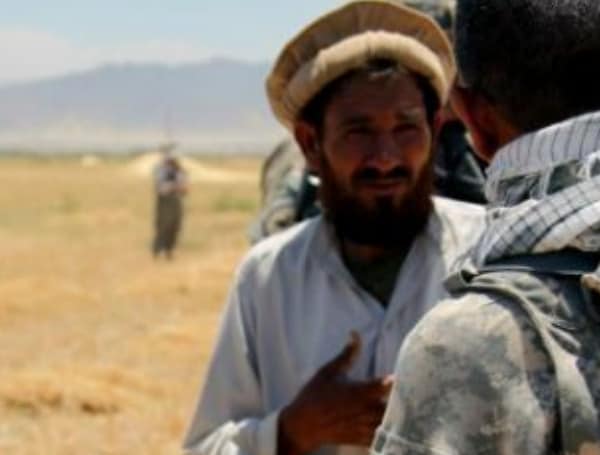By Thomas R. Cuba, Ph.D.
One of the discussions precipitated by the current events in Kabul today is about why we were there in the first place and why we were there for so long.
Rather than prepare a separate essay on this item, the reader is referred to a passage written by Sebastian Roberts in his book, Dragonfly. It is clear and simple, as it should be.
In the passage, Chance Inman (Sec Def) and Ben Pratt (Sec State) present the conclusions of their study of the topic to President Madison Thompson and Wendy Elliot (Press Sec).
*****
Chance picked up the story. “Once we got past the nomenclature, things were much easier to understand. We care about defense, commerce, and people: period. With that accomplished, we started to unravel the question of national interest.”
“We always hear that one thing or another is in our national interest,” Ben said. “It’s used as an excuse for damn near anything that no one can find a real excuse for. But what actually is our national interest? Applying the Levindusky principle of extreme simplicity to resolve complex questions, we arrived at one thing. The national interest is in promoting American principles of freedom around the world. We are an exceptional nation because we have an exceptional form of government.”
Madison’s eyebrow shot up. “Wendy, write that down and flag it for me for later. Sorry. Go on, please.”
“That’s it,” Ben said. “Our national interest does not lie in oil or polar expeditions or interstellar space travel. Our national interest is our brand of freedom.”
“Don’t leave him hanging too long, Ben,” Chance said. “We also identified something that we call the interest of the nation. It is within the interest of the nation to have good commerce and friendly relations with foreign governments, but these interests are quite different from the supreme interest in American freedom. The interest of the nation revolves around commerce: Trade, travel, markets, and economics. Finally, we have the human element. Human interest is reflected not in the national interest or the interest of the nation but in the interest of the people of the nation. This encompasses everything from the Peace Corps to the AIDS or Ebola programs in Africa. It’s feeding the hungry and providing medical help after a volcano or tsunami.”
Ben summarized. “Foreign relations comes down to three sets of paired ideas; Defense and the National Interest, Commerce and the Interest of the Nation, and Human Interest and the Interest of the American people. When someone claims that sending food to Syrian refugees is in our national interest, they corrupt the simplicity and purity of the ideal. Eventually, things are so muddied that people in power just do whatever they want or whatever is politically favorable, put a label on it and bask in the glory. By simplifying, we can keep our focus and our priorities straight. Our national interest must be superior to the interest of the nation.”
~ From Dragonfly, by Sebastian Roberts.
Copyrighted Material, Sebastian Roberts, 2014. Reprinted with permission.
Support journalism by clicking here to our GoFundMe or sign up for our free newsletter by clicking here
About The Author: Thomas R. Cuba, Ph.D.
Android Users, Click Here To Download The Free Press App And Never Miss A Story. It’s Free And Coming To Apple Users Soon
Raised a simple Missouri farm boy, Tom managed to attend a British Prep School before commencing a college career that would culminate in a Doctorate Degree in Marine Ecology. He also served as an Intelligence Officer in the U.S. Navy, and as a scoutmaster, SCUBA instructor, Wilderness Survival Instructor, and Firearms Instructor.
Tom has worked as an ecologist in both government and private practice, as well as a freelance nature photographer and computer programmer.
Now, a father and grandfather, Tom offers life lessons in the form of stories about the challenges people face and conquer as well as socio-political essays. To that end, his first lesson is always his favorite quote. “Failure is the whetstone of success.” ~ T. Leith Rettie, 1884.
You can read more from Tom on his site by clicking here
